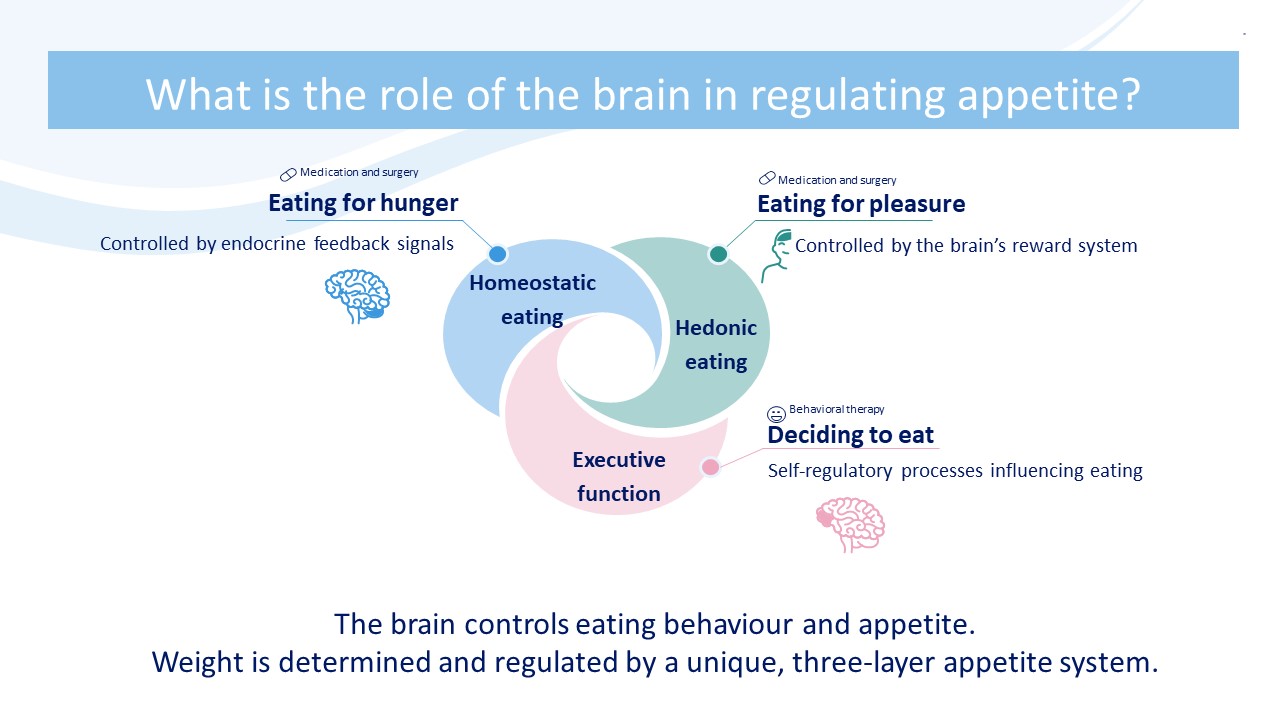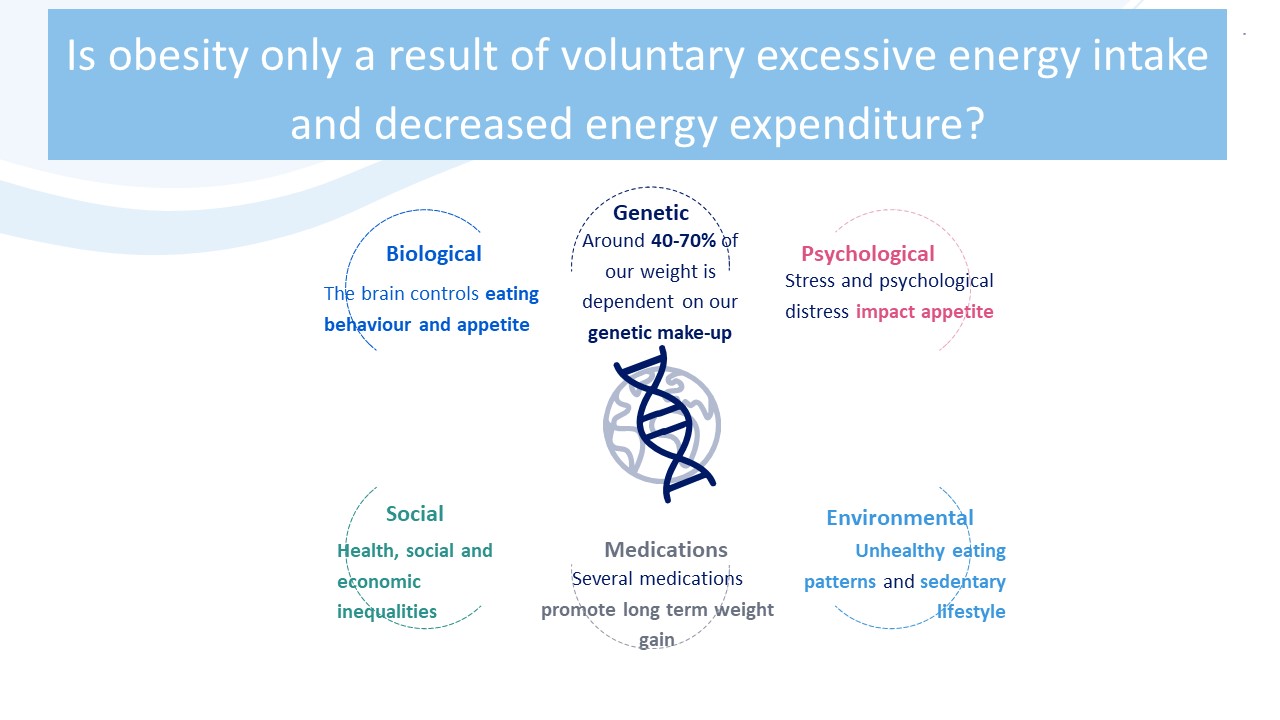The biology of weight control by Dr Terri-Lynne South, BSc, MBBS (Hons), FRACGP, Grad Dip Nut & Diet
 Anthea Talliopoulos, APD
Anthea Talliopoulos, APD
The biology of weight control is a complex interplay between a person’s genetics and the environment, mediated by their biology and behaviour. While there are many outdated attitudes, beliefs, and expectations amongst the general public and in healthcare, including weight stigma, Dr Terri-Lynne South explains that genetics are estimated to account for 40-70% of an individual’s weight. She also explains how aspects such as biological differences, energy balance, and hormone (such as through ghrelin and leptin) and neuronal signalling also impact weight loss through a vast range of mechanisms. Further to this, there is a powerful biological drive for a person to regain weight lost, emphasising the importance of providing non-judgemental patient-centred care.
In considering the physiology of weight control, delving beyond the BMI is critical, and in working with patients who are seeking weight loss, obtaining a thorough assessment, educating on the biology of weight control, setting realistic expectations, and working alongside a multidisciplinary team (such as general practitioners to provide personalised medicine), is key. Weight goals and targets should also be tailored to the individual, with a benefit in reducing inflammation being seen at even a 5% weight loss. The benefits of weight loss in a clinically appropriate setting cannot be overlooked, with early weight management intervention reducing the progression and complication of conditions such as type 2 diabetes and sleep apnoea.
Overall, in working with patients seeking weight loss or where weight loss may be clinically indicated, providing an individualised and holistic approach, with an aim of reducing the stigma around body weight can ensure that patient health is prioritised.
Summary:
- The biology of weight control is a complex interplay between a person’s genetics and the environment mediated by their biology and behaviour.
- In considering weight control, genetics cannot be overlooked and are estimated to account for 40-70% of an individual’s weight.
- There is a powerful biological drive for a person to regain weight lost, emphasising the importance of providing non-judgemental patient-centred care.
- Providing an individualised and holistic approach, with an aim of reducing the stigma around body weight can ensure that patient health is prioritised, while achieving weight loss.
Terri-Lynne South is dual-qualified as both a Medical Doctor and Dietitian. She is the Medical Director of a specialised health service Lifestyle Metabolic.
Terri-Lynne has more than 25 years of experience in the health profession. She is passionate about metabolic health with a focus on providing a holistic health service that achieves positive outcomes anchored in evidence, innovation, and experience. Terri-Lynne is dedicated to breaking down the stigma, bias and shame associated with the label “obesity” and promoting the science behind the concept of obesity as a chronic medical condition.
She sits on several advisory committees at the state and national level to ultimately help clients with diabetes, metabolic syndrome and other health conditions associated with living in a larger body.
To register for the presentation and associated documents including the assessment quiz click here

